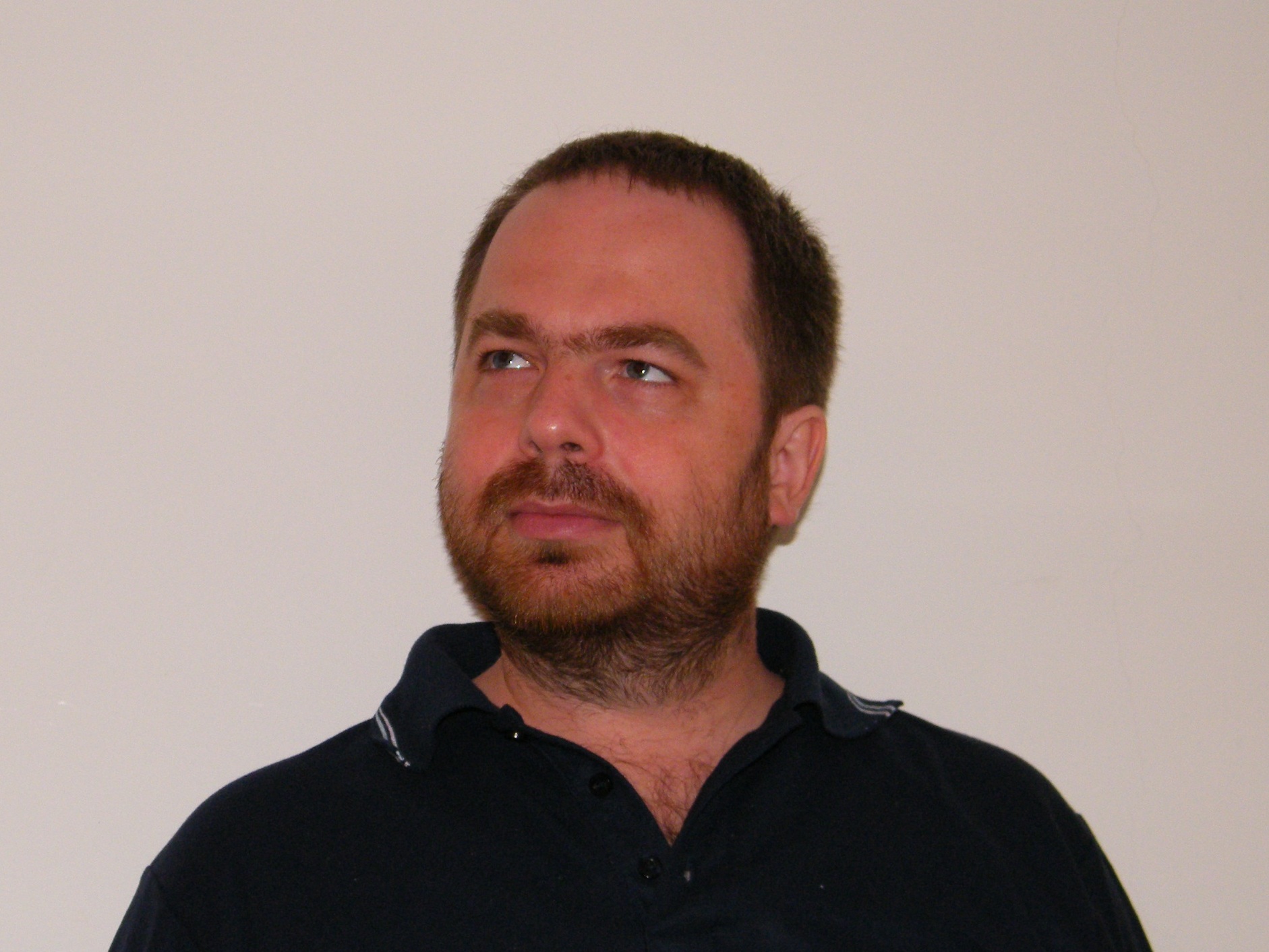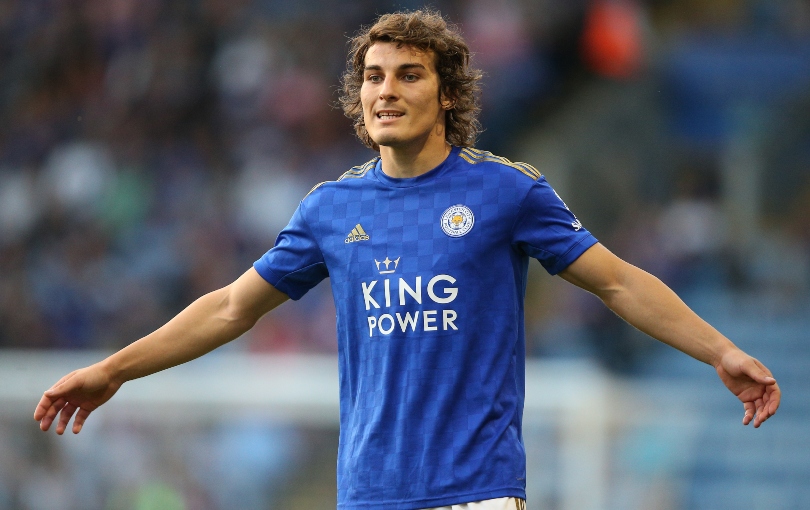Olympiakos: Arsenal's familiar foes who've hired 24 bosses since Wenger arrived
The Gunners face the Greeks for the seventh time since 2009, and arrive with domestic dominance easily assured once again, writes Michael Yokhin...
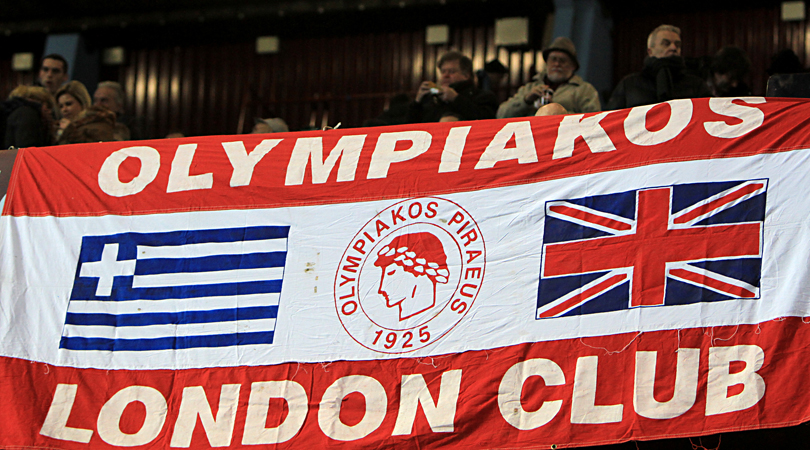
Who are they?
Olympiakos are the ultimate top dogs of Greek football. In the 19 years since Arsene Wenger took over at Arsenal, the Red and Whites from Piraeus have won 17 championship titles, only losing out to arch rivals Panathinaikos in 2004 and 2010. Even more incredibly, they've won seven league and cup doubles in the last 11 seasons; compare that to the fact that there have only been 11 league and cup doubles completed by any team in the history of English football since the 19th century.
Such remarkable dominance is achieved mainly because Olympiakos are by far the richest club in the country. Their financial power is growing year on year thanks to hefty bonuses from UEFA for playing in the Champions League, and that makes the gulf between them and the rest wider and wider. They play at the modern Karaiskakis Stadium built in 2004, while Panathinaikos are still stuck with the outdated Apostolos Nikolaidis Stadium that was constructed in 1922.
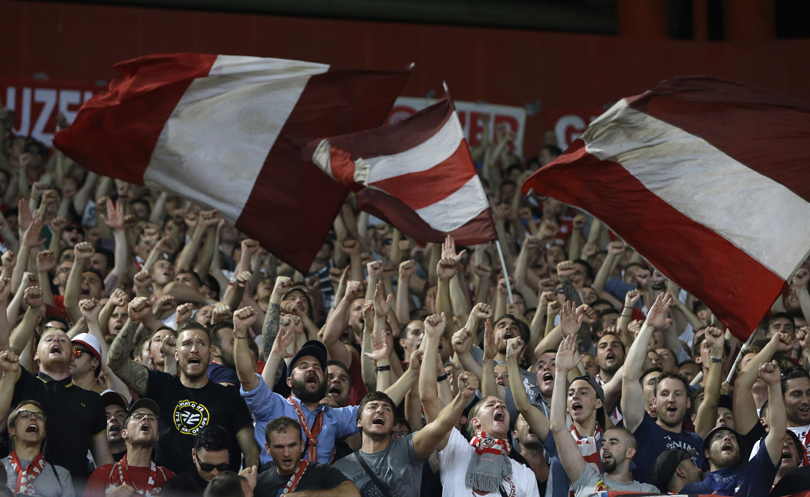
It's easy to see the positives of toying with everyone around them, but the situation also has very significant drawbacks. The fans are so used to winning in domestic competitions that they almost take the titles for granted, only judging the team by their results in Europe. Lacking real competition in Greece, Olympiakos are unable to ready themselves for the level that's expected of them in the Champions League, and fail against top opposition more often than not. Subsequently, there is constant pressure on the team, regardless of their results on a weekly basis, and that prevents any kind of stability.
During the 19 years Wenger has been in charge at Arsenal, Olympiakos have employed 24 coaches. The list includes specialists from 12 different countries, from Zico of Brazil to Trond Sollied of Norway and Temuri Ketsbaia of Georgia. No coach has been able to keep his job for more than two years, and most were considered to be failures even though they won a shedload of silverware between them.
Just look at the script this year. Michel, the Real Madrid legend who had been doing a remarkable job, was sensationally fired in January just as he was approaching two years in the office. Olympiakos brought in Vitor Pereira, the Portuguese coach of Porto fame, who signed a two-and-a-half-year contract and duly won the double. But even that wasn't enough to save him, and he was dismissed in June.
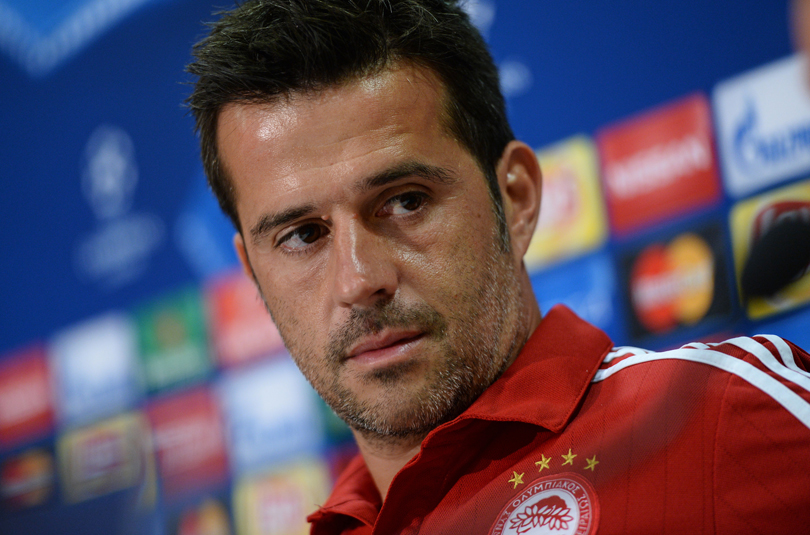
Marco Silva, the 38-year-old Portuguese who was unceremoniously dumped by Sporting Lisbon to be replaced by Jorge Jesus, is the new boss on a two-year deal, but the chances of him seeing it out are not too high to put it mildly – unless he proves himself in the Champions League. A 3-0 home defeat at the hands of Bayern Munich two weeks ago makes the game at the Emirates Stadium absolutely crucial for Olympiakos. If they are thrashed again, Silva’s position will already be in danger, and nobody will even think of taking his perfect record of five wins from five in the Greek Superleague into account.
The best features, fun and footballing quizzes, straight to your inbox every week.
Strengths
Olympiakos have a nice blend of experienced stars and young talents. Spanish goalkeeper Roberto has proved to be a top performer on many occasions, and the Greeks can rely on him even though Thomas Muller lobbed him brilliantly two weeks ago. Esteban Cambiasso, Champions League winner with Inter in 2010, is an astute signing after the 35-year-old Argentine decided to leave Leicester after just one season.
Arsenal should also be wary of the Greeks' youthful, energetic attack-minded full-backs: 23-year-old Norwegian Omar Elabdellaoui grew at Manchester City's academy, and should get a chance to shine in the Premier League sooner rather than later. The same can be said of 21-year-old Frenchman Arthur Masuaku, who was signed from Valenciennes in the summer of 2014 and immediately became a fans' favourite.
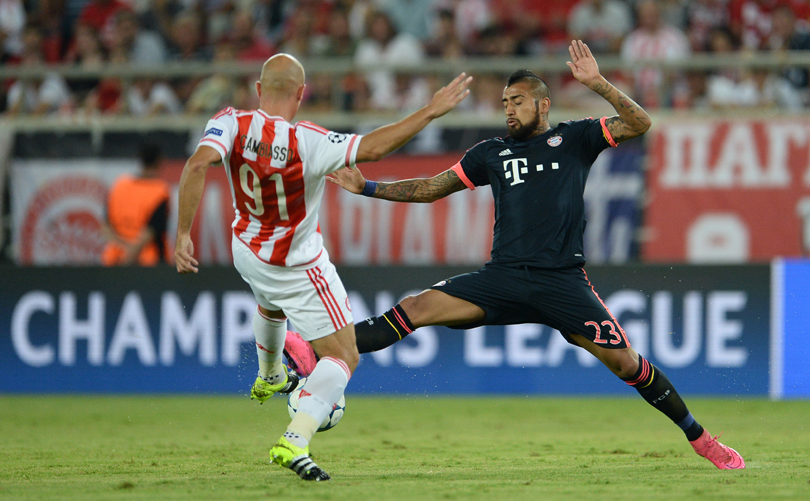
Weaknesses
There are significant problems in every department. Central defence looks extremely shaky, with new signing Manuel da Costa probably the most inconsistent stopper you’ll ever see. The midfield isn't the same without combative captain Giannis Maniatis, who hasn’t played this season after injuring his knee in March. Up front, Olympiakos don’t have a proven goalscorer. West Bromwich Albion supporters can testify that Brown Ideye is not the world-class striker a team needs to prosper in the Champions League.
The game plan
Silva mostly uses a 4-2-3-1 formation. At Arsenal, the defensive midfielders can be expected to sit very deep, but the full-backs should still join in the attacks. Chori Dominguez is the main source of improvisation, and the Gunners will be well on the way to a clean sheet if they manage to mark him efficiently.
Key player
That is easier said than done as far as Dominguez is concerned. Manchester United know that only too well – the Argentine wizard destroyed them with a magical performance in the last 16 in February 2014, scoring in the 2-0 win, even though the Red Devils went through in the return leg. Dominguez is now 34, and his best season was probably when he won the Russian title with Rubin Kazan back in 2009. He is still a joy to watch when on song, but may not be able to last the whole 90 minutes at the Emirates on Tuesday evening.
Famous for...
Olympiakos have a habit of signing superstars who are nearing the end of their careers. Rivaldo famously played for them between 2004 and 2007. Christian Karembeu starred in Piraeus and now works as the strategic advisor. Eric Abidal retired at Olympiakos last year and now serves as the marketing director.
Club legend
It would be difficult to choose just one legend in the history of the club that has won 42 championship titles, but the most exciting Olympiakos team was probably that of the late '90s and early 2000s, with two bald wingers setting the pace. Stelios Giannakopoulos and Predrag Djordjevic have enjoyed cult status ever since. The Greek spent seven years at the club and scored the phenomenal goal against Porto that brought them their first ever Champions League win in 1997, before joining Bolton in 2003. The Serbian legend stayed in Piraeus for 13 years until his retirement in 2009, and is the symbol of great domestic success.
GREAT GOALS RETOLD Stelios vs Porto, 1997
Arsenal vs Olympiakos LIVE ANALYSIS with Stats Zone
Michael Yokhin is a European football writer. In addition to FourFourTwo, he wrote for Guardian, BBC, ESPN, Blizzard, New York Times, Independent, 11Freunde, Josimar and others. He takes keen interest in leagues, teams and players that might be a bit out of the main focus in the mainstream media, and loves football history as well.
